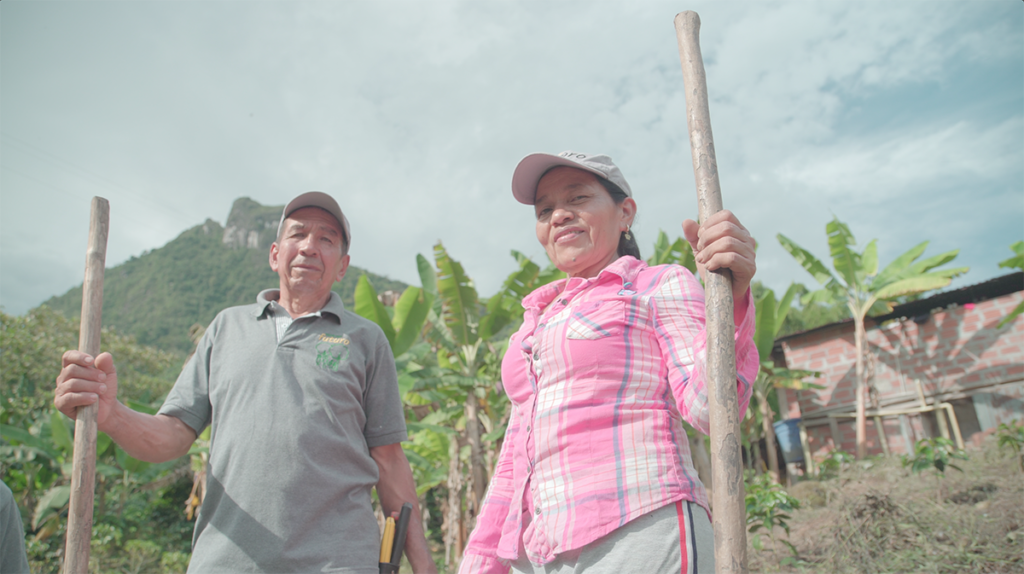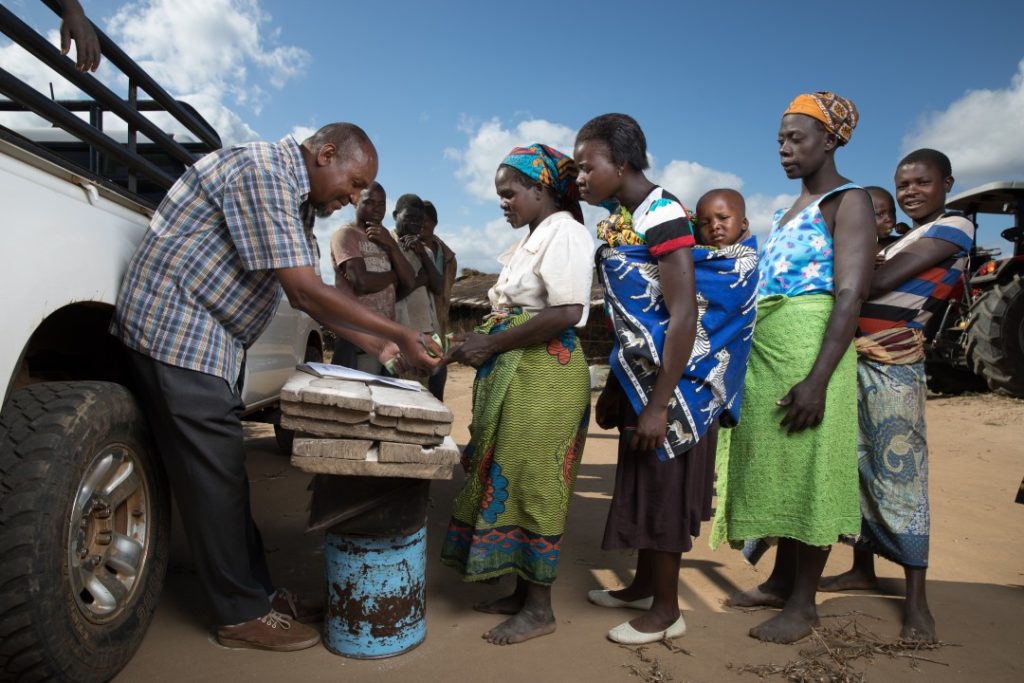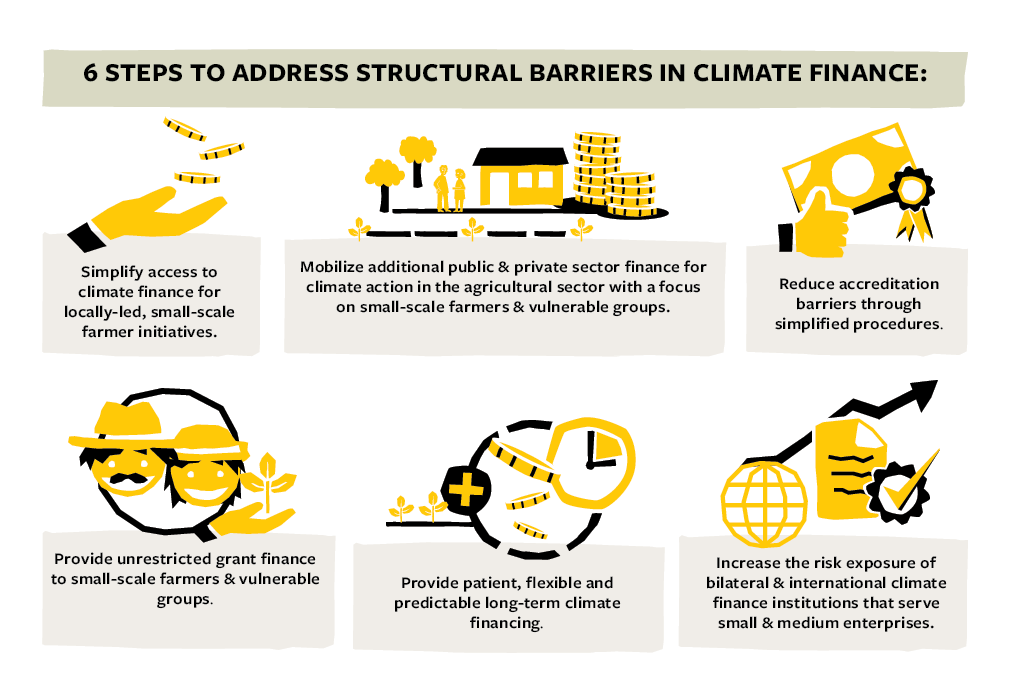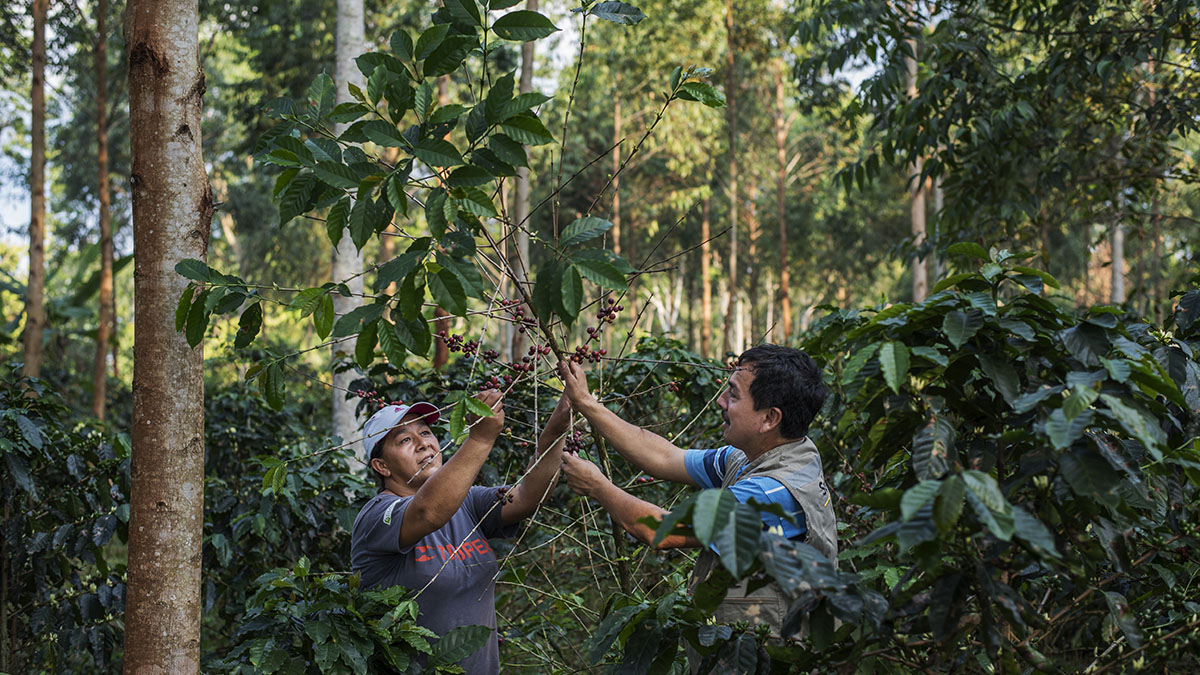At Solidaridad, we believe that the proportion of climate finance must increase dramatically and priority should be given to locally-led initiatives that build small-scale farmer climate resilience.
Download our full COP27 statement here (PDF)
The world depends on a strong smallholder farmer sector. Not only do smallholders produce a significant share of the world’s food, their farms provide a livelihood for millions. In Africa alone, the World Agricultural Report estimates that 53% of all people rely on agriculture for their livelihoods.
Only 1.7 % of climate finance – a fraction of what is needed – goes to small-scale farmers in developing countries despite their disproportionate vulnerability to the impacts of climate change, according to a report released by the UN’s International Fund for Agricultural Development (IFAD) and Climate Policy Initiative (CPI).
“It is time to discuss how all the billions of climate finance are actually spent and to reflect what structural barriers there are to serve the people who are most affected by climate change.”
Eduard Merger, Climate Innovation Lead & Climate Finance Business Developer at Solidaridad Network. Read Eduard’s full article on Linkedin (in German).
Unless attention and action shifts towards smallholders, we risk a dual crisis: a simultaneous decrease in smallholders’ ability to provide, and a greater dependence on food imports in developing/emerging economies.
COP 27: Accelerating global climate action
This week, Solidaridad joins others at COP 27 in Egypt, a global event that aims to accelerate global climate action and broker commitments to reductions in emissions, scaled-up adaptation efforts, and increased flows of finance where most needed.
The event is a marker where countries gather to take stock of the current state of climate change and commit to action towards achieving the world’s collective climate goals as agreed under the Paris Agreement Convention. Based on the outcomes achieved at COP 26 in Glasgow, nations are expected to demonstrate a new era of implementation at COP 27.
The four main focus areas are:
- Mitigation: Limiting global warming to well below 2 degrees celsius and working hard to keep the 1.5 degree target alive. This requires bold and immediate actions and increased ambition from all parties.
- Adaptation: Increasingly extreme weather events – heat waves, floods, forest fires – have become an everyday reality of our lives. In this environment, resilience and adaptation measures are critical for all, but especially the 475 million smallholder farmers most affected by the climate crisis.
- Finance: Significant progress must be made on climate finance while moving all finance related items on the agenda forward. Adequacy and predictability of climate finance is key to achieving the goal and building greater trust between developed and developing countries.
- Collaboration: Governments, the private sector and civil society must all work in tandem to transform the way we interact with our planet. Enhancing and facilitating agreement in the negotiations to achieve tangible results. The advancement of partnership and collaboration will help ensure the world is adopting a more resilient, and sustainable economic model where humans are at the center of climate talks.

The untapped potential of smallholders
Smallholder farmers are among those most affected by climate change and they often have little say in policies that determine their future. The livelihoods of more than 2.5 billion people worldwide depend on small-scale agriculture and family farming, yet these farmers are subject to more frequent extreme weather events, particularly in Africa, Asia, Latin America, Small Islands and the Arctic.
“Farmers play an essential role in the transition to a carbon-neutral economy while also ensuring food security. It’s time to change the narrative of farmers as victims and perpetrators to the climate heroes and entrepreneurs that they actually are,” according to Heske Verburg, Managing Director Solidaridad Europe, in her recent article “We need smallholder farmers worldwide to tackle the climate crisis”.
Rural communities play an essential role in the transition to a carbon neutral economy where greenhouse gas emissions generated by productive activities are compensated with the carbon captured. Solidaridad helps build resilient communities that are active participants in resilient, low-emissions food systems. Smallholder farms are critical to food security, but they also hold enormous potential as a carbon store.
Smallholders can and do provide many ecosystem services, including the protection of old growth and secondary forests, planting of trees, pollinator-friendly farming, and reductions in soil erosion. If we hope to maximize their potential, smallholders will require technical assistance and technologies that they cannot always afford on their own. Fair payment for these ecosystem services, beyond compensation for the food they produce, is not only just, but necessary to finance their efforts.
Solidaridad supports climate resilient agricultural systems
In 2021 at COP 26, world leaders, stakeholders and civil society organizations agreed to include sustainable agriculture among their commitments. At the time, Solidaridad laid out how we support climate resiliency in agricultural systems by supporting smallholders to adopt climate-smart farming and deliver crucial ecosystem services, such as carbon sequestration, biodiversity protection, water purification and soil conservation.
Carbon markets represent a great opportunity to recognize farmers for their existing contributions, incentivize the adoption of better practices, and fund future investments. Agroforestry in Action, or ACORN, is an agroforestry marketplace by Solidaridad partner Rabobank that offers lower transaction costs and a significantly higher carbon price compared to others. Farmers directly receive roughly 80 percent of the carbon value – a truly fair share.

A call to action for finance delivery organizations and policymakers
Currently, very limited amounts of climate finance reach smallholders and other vulnerable groups. Because of this, we urge the international climate finance community and policymakers to evaluate and adapt current climate finance delivery mechanisms to the unique needs of smallholders. We propose that climate finance providers support and prioritize locally-led climate action for smallholders and local communities at scale, so that decision-making power, financial flows and resources are transferred to the local level.
“As part of the UN SDGs’ commitment to leave no one behind, it is critical that we reconsider how due diligence is conducted to build a trusting relationship where local priorities and expertise are respected and valued,” said Nonsi Nkomo, the Regional Business Development Coordinator for Solidaridad – East, Central and Southern Africa, in her article “Transitioning to Unrestricted Climate Finance: What will it Take?”.
Such commitments should enable more predictable and long-term financing for small-scale farmers while strengthening and empowering local institutions to scale gender-equitable, socially-inclusive and locally-led climate action.
In our COP27 statement here (PDF), we outline six recommendations:
- Simplify access to climate finance for locally-led small-scale farmer initiatives. This includes reducing the complexity, bureaucracy and resource intensiveness of application processes.
- Mobilize additional public and private sector finance for climate action in the agricultural sector, with clear mechanisms to channel funds to small-scale farmers and vulnerable groups. Public sector finance should create an enabling environment that facilitates the channeling of public and private sector funds to local actors for climate action. We must support such action through innovative mechanisms and partnerships with the private sector, government, research institutions and civil society organizations, among others.
- Reduce accreditation barriers through simplified procedures and provide financial support for local organizations to gain accreditation and develop their skills.
- Provide unrestricted grant finance to small-scale farmers and vulnerable groups who are disproportionately affected by climate change to strengthen food security, livelihoods resilience and local ecosystems.
- Provide patient, flexible and predictable long-term (>8 years) climate financing for locally-led resilience-building initiatives that enable long-term, nationally embedded, and locally owned solutions that respond to the needs of small-scale farmers and support locally-anchored organizations.
- Increase the portfolio of bilateral and international climate finance institutions that serve higher risk small and medium enterprises. Provide concessional finance and other suitable instruments to the private sector, especially small and medium enterprises normally considered high-risk.


